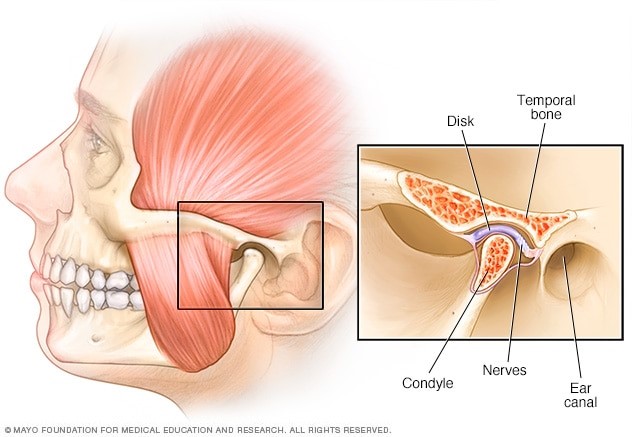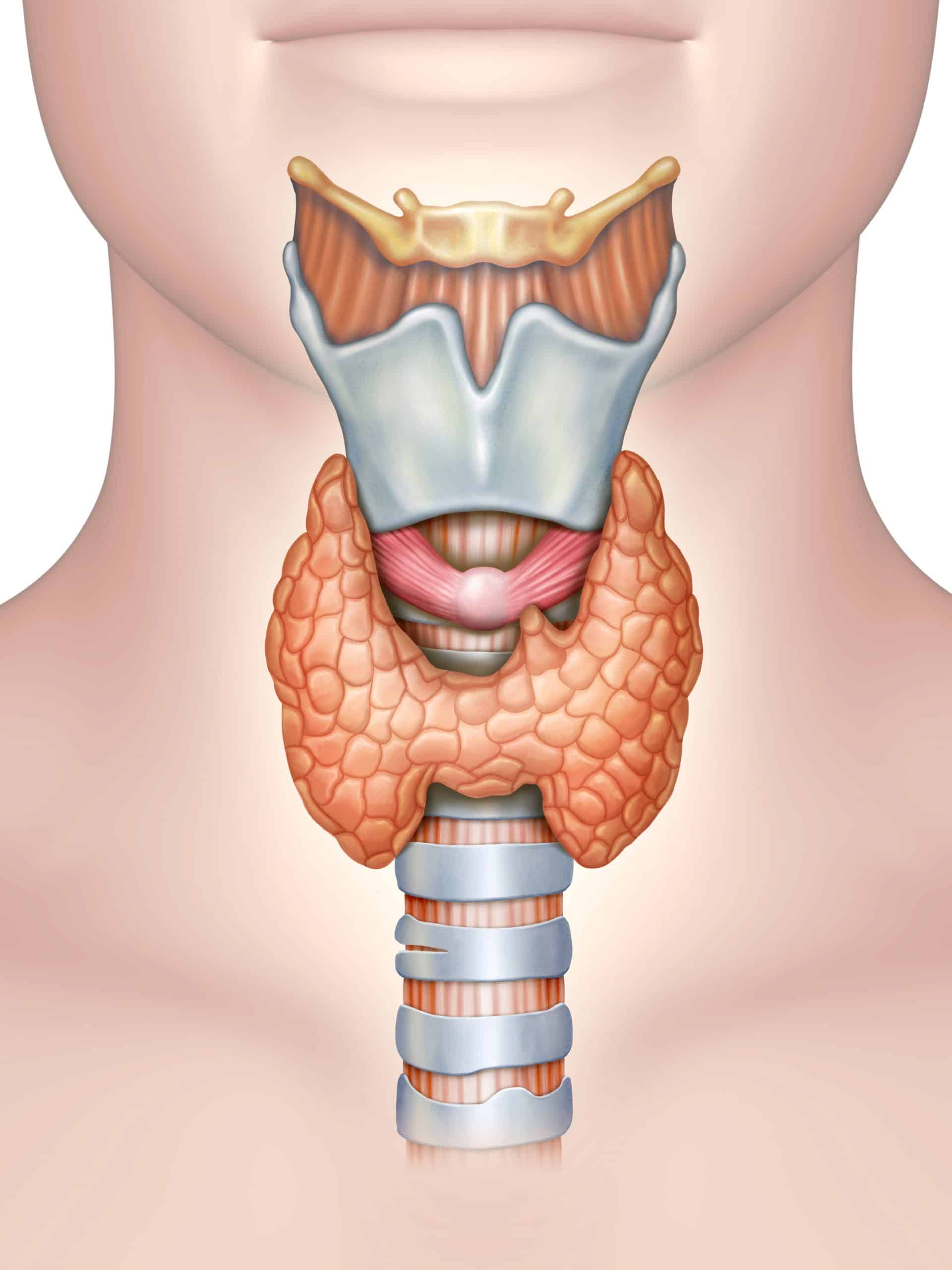Temporomandibular joint and muscle disorders (TMJ syndrome) are a group of conditions that cause pain and dysfunction in the jaw joint and the muscles that control jaw movement.
The temporomandibular joint is the most complicated joint in the human body. It includes muscles, nerves, tendons, ligaments, bones and cartilage. The temporomandibular joints have a unique structure which consists of two joints that connect the jawbone (mandible) to the skull (temporal bone) with the tendon and muscle attached to and surrounding the joint and ligaments which connect the two bones. The temporomandibular joints are a bilateral synovial articulation between the temporal bone of the skull above and the mandible below with an articular disk in between which separates the two joints and keeps the movement smooth. The joint acts like a sliding hinge allowing the jaw to move up and down and side to side for speaking, chewing, yawning etc.
Symptoms
The symptoms of TMJ syndrome may include: pain of the jaw, pain in one or both of the temporomandibular joints, aching in and around the ear, difficulty or pain while chewing, locking of the joint, and/or a clicking sound while chewing or moving the jaw.
Causes
The pathophysiology of TMJ syndrome is not fully understood. Researchers believe it is multifactorial and may arise from both local insults as well as systemic disorders. Local insult/injury can cause joint displacement, dislocated jaw, or injury to the condyle and the surrounding tissues due to factors such as inappropriate biting habits and teeth structure. These can cause an internal derangement of the articulating disk and injury to the muscle, tendon, ligament, cartilage, bones and nerves leading to the pain and symptoms associated with TMJ syndrome.
Stress is thought to be a factor in TMJ and it is often linked to the temporomandibular joint. Mental stress during stressful situations or physical stress such as conducting strenuous physical tasks often manifest in ways of clenching or grinding teeth which causes overuse of the temporomandibular joint tissues resulting in tissue inflammation and injury leading to the development and aggravation of TMJ. Anxiety symptoms like tense muscles and jaw clenching can also ultimately cause TMJ.
Systemic disorders such as rheumatoid arthritis (RA) and osteoarthritis can also contribute to TMJ syndrome. These conditions can cause joint cartilage damage which can affect the temporomandibular joint. In osteoarthritis, enzymes such as matrix metalloproteinases (MMPs) are upregulated and break down the cartilage’s collagen network. In RA, the immune system attacks the lining of the joints causing inflammation which can damage cartilage as well as bone tissue.
In summary, risk factors that can increase the chance of developing TMJ syndrome include various types of arthritis, jaw injuries, long-term grinding of teeth, and certain connective tissue disorders that affect the temporomandibular joint.








